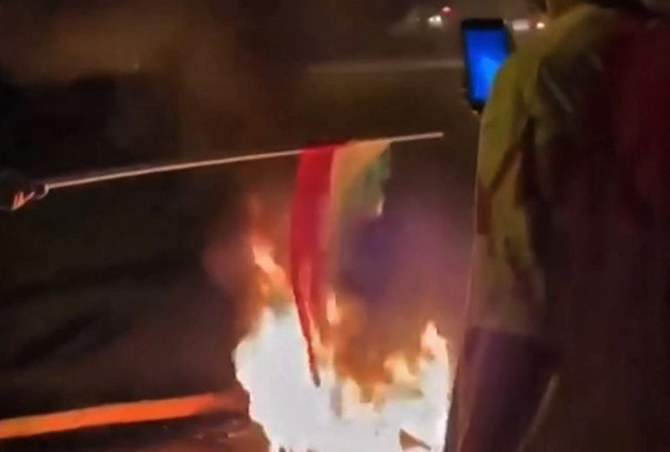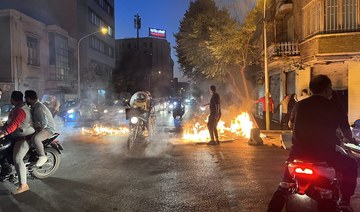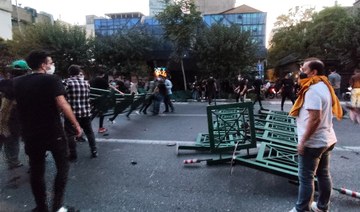LONDON: Reports from Iran suggest authorities are set to clamp down on the city of Zahedan, the site of assaults on protesters in 2022 that left multiple people dead or injured.
Sixty-six people are known to have died after security forces opened fire on demonstrators on Sept. 30, a day subsequently known as “Bloody Friday,” at a march to protest the death earlier that month of 22-year-old Kurdish woman Mahsa Amini while in the custody of the country’s morality police for not wearing her hijab correctly.
A number of people told the Guardian that at least 15 checkpoints had been established across Zahedan, the capital of the southeastern Sunni-majority Sistan-Baluchistan province, and that multiple arrests had taken place.
One man named Mohammad told the paper: “All entrances and exits to and from the city have been blocked and they’ve set up checkpoints. We have no idea how many were detained (or) where they were taken.”
Farzin Kadkhodaei, a human rights activist from Baluchistan, said that police had started filming protesters in order to identify and arrest them later. “People are being abducted from homes, parks and, from Jan. 1, they’ve started making mass arrests. We don’t even know if they’re alive or dead.”
Kadkhodaei said that at least 114 people had been detained so far, at least one had been brutally tortured, and that families were forced to visit courts on the off chance of seeing their arrested relatives.
“The release of minors who have been arrested depends entirely on the mood of the guards that day,” he said. “They released a few teenagers and the rest are still in prison.”
One detainee, 18-year-old Shoaib Mirbaluchzehi-Regi, has reportedly been denied legal help and tortured into confessing to membership of an armed group. He now faces the death penalty, activists told the Guardian.
Sistan-Baluchistan has taken the brunt of much of the Iranian regime’s response to the protests.
One demonstrator, identified only as Sara, told the Guardian: “Security forces have been attacking the Baloch areas for about two weeks. At least 15 checkpoints have been set up in and around our city this week. They will try to threaten us and we are not going to be afraid.
“This government has discriminated against the Balochis, Kurds, Sunnis, Baha’is and other national minorities since the beginning (of the Islamic Republic). But these discriminations are more painful in (Sistan-)Baluchistan. Because they are both Baloch and Sunni, and Baluchistan is the poorest region of Iran.”
Skylar Thompson, head of advocacy at Human Rights Activists in Iran, said facts on the ground about the situation in Zahedan were hard to confirm.
“We don’t have information that the city is under siege but it is the only place in Iran where the protests are continuing,” she told the Guardian. “It’s true that the atmosphere in the city does feel rather unsafe. We have noted that there are more checkpoints in the city. But I think that this is due to the appointment of a new governor.”
Activists fear Iranian crackdown imminent in city of Zahedan
Short Url
https://arab.news/bxg24
Activists fear Iranian crackdown imminent in city of Zahedan

- The capital of Sistan-Baluchistan was the site of massacre of 66 protesters on ‘Bloody Friday’ in September
- Residents say checkpoints have been set up around the city, and that many people have been detained















